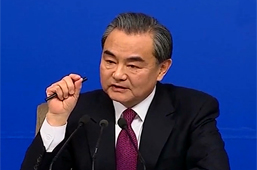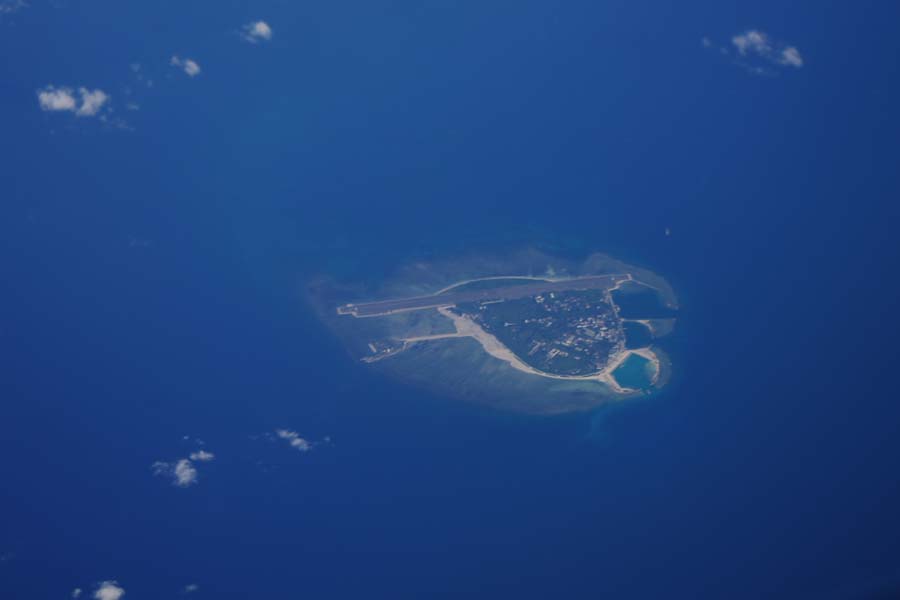
Illustration: Luo Xuan/GT
On Friday, 37 heads of state or government will attend the second Belt and Road Forum on International Cooperation in Beijing. Over 5,000 participants from more than 150 countries and 90 international organizations are scheduled to attend the three-day event.
Certainly, this event will be a milestone both for the Belt and Road Initiative (BRI) and international development and global governance. However, there are still a few misperceptions and misunderstandings about BRI or other key topics related to China that are in urgent need of clarification. For example, whether China is utilizing the BRI to control the South China Sea is one of the most heated issues.
In the face of the China-proposed BRI, especially the "21st Century Maritime Silk Road" passing through the South China Sea and its neighboring regions, some Western powers and our neighboring countries have doubts, confusion and even a certain degree of panic. An article on Business Insider claimed that "China's approach has been to provide financing in many ASEAN countries in order to split opposition to its moves in the South China Sea."
It isn't surprising that some countries may have been pretending not to see the obvious fact that the initiative is a cooperative, altruistic and open project. They choose to blindly rebuke the project as China's means to control the South China Sea, trying to turn other countries against China and lead public opinion astray. But rumors cannot hold water in the face of the truth. In the past six years, the BRI in the South China Sea and its surrounding areas has fully proved the points below:
First, China has never attempted to build the BRI into a closed, exclusive small coterie. Instead, it's a very transparent and open circle of friends. It is open to the entire international community and continuously provides more and more international benefits via financing, infrastructure, joint search and rescue, and maritime counter-terrorism.
Second, China has never used BRI to infiltrate or control any country. Political development in other countries has been steadily advancing in accordance with their own national laws and political agendas. People elect their preferred political parties and leaders in accordance with their own interests and will. Assertions that China controls countries around the South China Sea by virtue of the BRI go against the legitimate regimes of many Southeast Asian countries, as well as being disrespectful to local people. These countries have also learned from and created opportunities through the BRI to promote their own economic development and social progress.
According to the plan, the "21st Century Maritime Silk Road" goes westward through the South China Sea to the Indian Ocean and the Mediterranean Sea, and southward to the South Pacific, which makes the South China Sea one of the important BRI routes. A peaceful South China Sea is imperative to the progress of BRI.
The BRI provides policy coordination between China and countries around the South China Sea. It is undeniable some countries in the region oppose China to a certain degree. In the past three years, China and relevant parties have successfully managed and controlled their differences and have continuously strengthened mutual trust. Moreover, with the joint efforts of all parties concerned, the Declaration on the Conduct of Parties in the South China Sea (DOC) is steadily heading in the direction of the "Code of Conduct in the South China Sea." The BRI has played a vital role in this process.
The BRI promotes infrastructure connectivity between China and other countries in the region. They have industrious people and abundant natural resources, but they are not fully developed due to insufficient infrastructure. Therefore, China has cooperated with neighboring Southeast Asian countries such as the Philippines, Vietnam, Malaysia, Brunei and Indonesia to jointly invest in the construction of important ports to create unimpeded trade and financial integration of the BRI. Through consultation and collaboration, the people of all countries eventually come together with their hearts more closely-knit.
The author is an associate research fellow at the Chongyang Institute for Financial Studies, Renmin University of China, and a researcher at the Charhar Institute. bizopinion@globaltimes.com.cn
Newspaper headline: BRI is not a ploy for Beijing to control the S.China Sea















